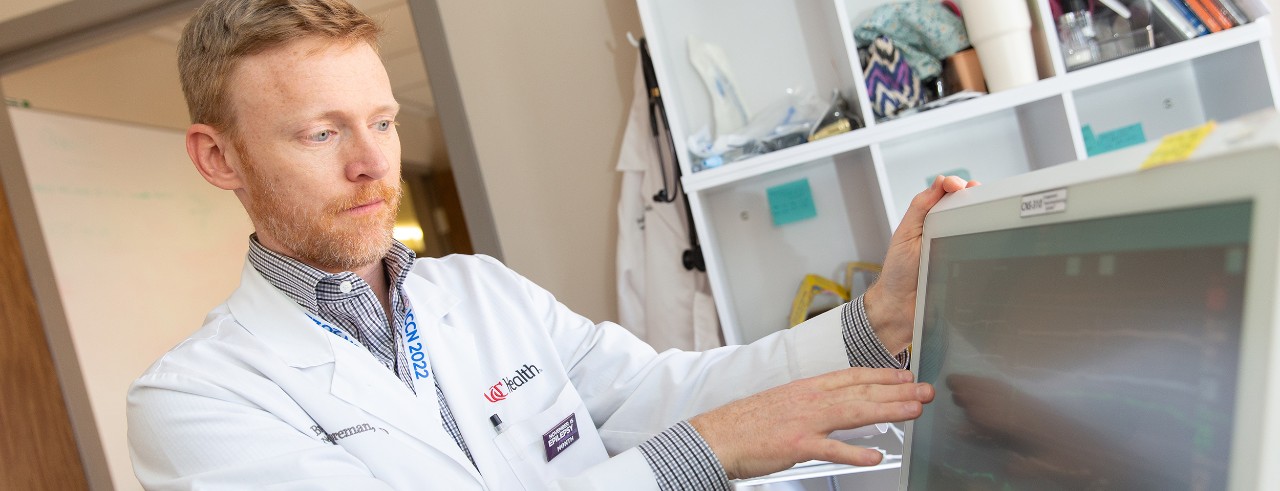
Trial finds new drug safe, effective to treat deadliest form of epilepsy
MSN highlights UC trial data presentation
MSN highlighted research presented by the University of Cincinnati’s Brandon Foreman that found ganaxolone is a safe and effective treatment for refractory status epilepticus, the most severe and deadly form of epilepsy where seizures do not stop.
Current standards of care include administering an intravenous antiseizure medicine, a benzodiazepine such as midazolam, as soon as possible to stop seizures. When those do not work, a second intravenous antiseizure medication is started, but about one quarter of patients continue to experience seizures, termed refractory status epilepticus (RSE).
The Phase 3 RAndomized Therapy In Status Epilepticus (RAISE) trial tested a neurosteroid called ganaxolone for patients hospitalized with seizures that progressed to RSE despite receiving two or more antiseizure medications.
Researchers found a statistically significant proportion of patients who received ganaxolone stopped seizing within 30 minutes: 80% of those patients receiving ganaxolone saw their RSE stop a median of just 4 minutes after the drug was administered.
“Ganaxolone as a rapidly effective medication would fill a specific gap in care for which there are no current treatment options beyond intubation and anesthetic medications if standard antiseizure medications fail,” he said. “It is recognized that the use of anesthetics increases the morbidity and mortality of RSE, so ganaxolone has the potential to save lives and avoid prolonged intensive care.”
Featured photo at top of Foreman looking at a brain monitor. Photo/Andrew Higley/UC Marketing + Brand.
Related Stories
Trial finds new drug safe, effective to treat deadliest form of epilepsy
October 23, 2024
MSN highlighted research presented by the University of Cincinnati’s Brandon Foreman that found ganaxolone is a safe and effective treatment for refractory status epilepticus.
Cincinnati mother and son team up to create an app that helps stroke patients
February 12, 2025
WLWT highlighted the University of Cincinnati’s Pooja Khatri and her son Ajai Nelson who have collaborated to launch the NIH StrokeNet Trial Finder app.
Learning more about how cancer affects stroke risk
October 16, 2023
A collaborative team led by University of Cincinnati, University of North Carolina and Duke University researchers is studying how specific cancers and treatments affect patients' risk of stroke.
